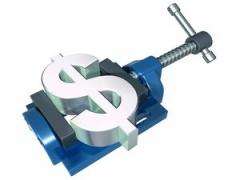This article from the Wall Street Journal caught my eye. It says that the US Government may decide to address the increased level of debt that it has incurred as a result of the various stimulus programs meant to address the Covid-19 economic shutdown through use of a policy called “financial repression”. It sounds bad, and it can be bad for banks and for people who want more income from their savings, but it isn’t as bad as it sounds for most people.

Financial Repression
A financial repression policy has several elements and requires coordination among the fiscal (Congress) and monetary (Federal Reserve) sectors of our government, which isn’t easy to pull off. Here is a list of the elements of financial repression that all need to be implemented at the same time for it to be effective:
- The Fed keeps interest rates very low;
- US Banks would be required to hold low-rate US government debt as a percentage of their assets on their balance sheets;
- A cap is placed on the rates that banks can offer to depositors;
- Banks would have higher restrictions on their ability to invest in international markets or securities;
- Higher bank reserve requirements; and
- Fiscal restraint, meaning Congress shouldn’t spend more money that it already doesn’t have. This may be the most difficult part of this to pull off.
By “repressing” the financial/banking sector and thereby preventing it from sucking profits out of the US economy, a financial repression policy aims to stoke private sector profits and therefore stoke tax revenues that will pay down the US Government’s debt.
Savers Suffer
It all sounds like a good policy. Who isn’t for more corporate profits and more tax revenues (except for socialists and anarchists)? Unfortunately, the sector that gets hurt is Savers such as the elderly on a fixed income who rely on safe investments such as bank CD’s for their income. If US Treasury rates remain low, then savings rates will also remain low. On a macro level, in a financial repression scenario, Savers forfeit a portion of the income from their savings to the Government so that the Government can pay down its debt.
The Upshot: Rates To Remain Low
What you should take from this blog post is that you should expect interest rates to remain low for the next several years. Federal Reserve Chairman Jerome Powell said as much in his press conference last week wherein he said, “We are not even thinking about thinking about raising rates”. This is bullish for corporate profits and therefore stocks, perhaps with the exception of the banking sector. The purpose of financial repression is to grow the economy, grow taxes derived from the economy, and thereby grow our way out of our increased debt levels.
Buy Stocks
This means you should buy stocks as a long-term investment. I recommend index funds for the bulk of your stock investments. Yes, there are a lot of uncertainties surrounding our current economic situation related to Covid-19 among other issues. However, if you are thinking about 5 to 10 years down the road, if the US Government pursues a financial repression policy, or at least elements of it, then the long-term payoff of buying stocks now and owning them for that long could be good and should outperform the alternative of investing in Government bonds or bank savings vehicles such as CD’s.
IMO
The WSJ article that financial repression worked in the US, Great Britain, and other countries after WWII, and that it is much more doable and palatable than other debt-paydown strategies such as a sharp rise in tax rates. Look for such policies to be implemented once again in the US once we are deemed to be through the worst of the Covid-19 crisis, which hasn’t happened yet. Policies to stoke growth are one thing, but keeping government big spenders in the legislative and executive branches in check will be the larger trick. Therefore, I expect the monetary side of the equation to be implemented while the fiscal restraint side not to be implemented. The result will be something like a return to pre-Covid levels of new government debt of $500 Billion to $1 Trillion annually, after which Congress and the President will declare victory while US debt levels will continue to mount, albeit at a lower rate than during the middle of the Covid crisis. I guess that’s sort of a victory, but it should all prove good for the stock market, in my opinion.
Savers: Are you seeing a dismal future for investments that generate income and are looking for an alternative? Please stay tuned to this space.
